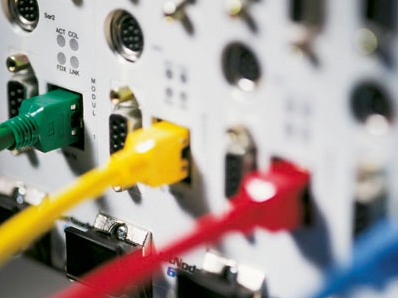The Digital Economy Bill proves digital democracy doesn't work
Now we've seen how UK politics really works

You've got to admire the Digital Economy Bill. It made thousands of people pay attention to politics.
It encouraged thousands of so-called Digital Natives to watch live streams from the House of Commons.
It brought together writers and readers, bands and fans, designers and developers and creatives of every kind. And then, slowly and deliberately, it dropped its digital trousers and waved its digital arse at the lot of them.
If we've learnt one thing from the Digital Economy Bill fiasco, it's that you should never underestimate the idiocy and venality of politicians. With a few honourable exceptions our MPs ignored tens of thousands of letters from thousands of constituents and didn't bother to turn up for the debates.
Of the few MPs who did turn up, most of them said how bad the Bill was and what a shocking abuse of Parliament it was, which was why they were going to vote for it anyway. Some MPs clearly didn't have a clue what any of it was about, which was why they were going to vote for it. Some MPs were pretty convinced that the BIll's plans wouldn't work, which was why they were going to vote for it. And so, depressingly, on.
It'd be funny if it weren't so serious, because if you really wanted to fight piracy the last thing you'd do is wind up thousands of geeks who understand things like encryption.
If you were serious about protecting creativity you'd pay attention to the howls of horror from authors and analysts alike. If you wanted a balanced debate you wouldn't just rubber-stamp paragraphs written by the BPI, and trot out statistics that have long been discredited.
Sign up for breaking news, reviews, opinion, top tech deals, and more.
If you really cared about the digital economy you wouldn't introduce legislation that could kill public Wi-Fi, smother high-tech start-ups and get home businesses knocked off the net should the owner's kids download the odd file.
And if you wanted to be re-elected, you wouldn't alienate your most vocal potential voters.
What's really depressing about all of this isn't the Bill itself, although of course that's a travesty. It's that for the first time, thousands of us have seen how UK politics really works.
In the run-up to the so-called Digital Election the parties all talk about crowdsourcing, about online engagement, about bringing politics closer to the people, but that's all window dressing.
Behind the iPhone apps, the Twitter feeds, the YouTube channels and the Build Your Own Poster sites it's business as usual: empty heads, vested interests and utter contempt for the electorate.
------------------------------------------------------------------------------------------------------

Contributor
Writer, broadcaster, musician and kitchen gadget obsessive Carrie Marshall has been writing about tech since 1998, contributing sage advice and odd opinions to all kinds of magazines and websites as well as writing more than twenty books. Her latest, a love letter to music titled Small Town Joy, is on sale now. She is the singer in spectacularly obscure Glaswegian rock band Unquiet Mind.